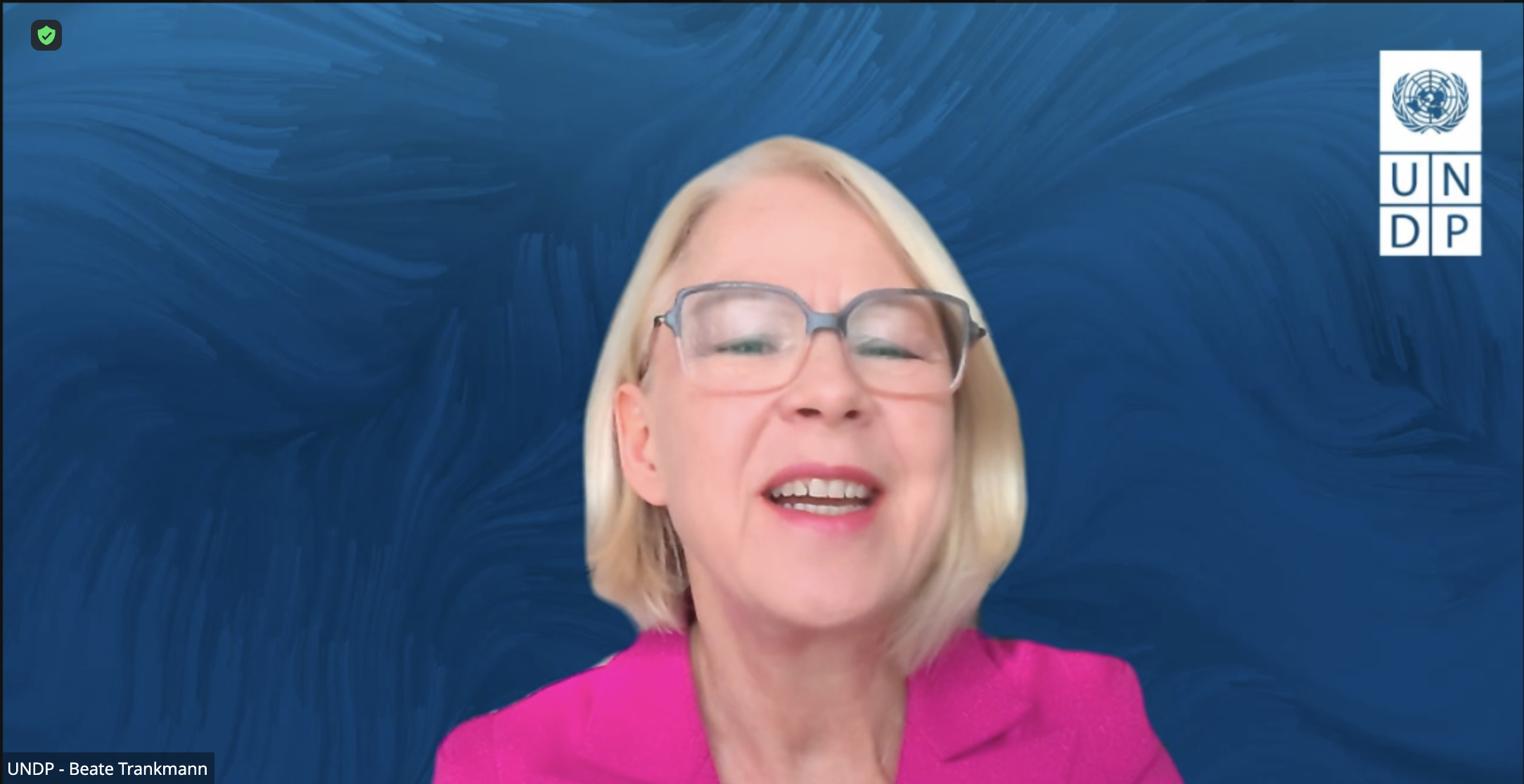Opening Remarks by Ms Beate Trankmann at the Workshop on Gender & the Just Green Transition
November 15, 2022

Ms Beate Trankmann, Resident Representative, UNDP China, delivered opening remarks virtually at workshop on gender & the just green transition
尊敬的各位来宾,我谨代表联合国开发计划署驻华代表处向参与本次活动的你们表示欢迎。
(Distinguished guests, ladies and gentlemen, good afternoon.
On behalf of the United Nations Development Programme in China, it is my pleasure to join this workshop on gender and the just green transition).
Ladies and gentlemen, as we near the end of 2022 the list of this year’s climate disasters appears strikingly long. From the heatwaves in Europe, wildfires across North America, to the epic floods in Pakistan, the impacts of our warming planet are more obvious than ever.
And this year’s disasters are only a glimpse of what is it come if we do not change course immediately.
At the current 1.2 degrees of warming, our world is already in crisis. But we are on track to exceed 3 degrees of warming – more than double the 1.5 degree target of the Paris Agreement – and which would lead to widespread destruction and leave much of the planet uninhabitable
As I speak to you today, world leaders are gathering at COP27 and working to turn commitments under the Paris Agreement into reality. With time running out to prevent an even larger climate catastrophe, this opportunity must not be wasted yet again. The world must accelerate concrete actions to reach net zero emissions.
A green economy transition is at the heart of reaching this goal. However, if not managed well it also risks widening social inequalities.
Women and girls are already more vulnerable to the impacts of the climate crisis due to their lack of natural and financial resources, energy access, and education and training opportunities.
This needs to be factored-in when transitioning to a low-carbon economy. While an estimated 42 million new green jobs will be created globally by 2050, most of these according to ILO will be in male-dominated sectors – like renewables, manufacturing, and construction – meaning women are at risk of being left behind.
So how can we change this trajectory? How do we ensure that the path to a greener and more sustainable world puts women - from all corners of society and the globe - at the centre?
First, we must see women and girls as agents of change, rather than simply victims of the climate crisis. Empowering women, through skills training and education, to participate in the workforce at the same rate as men is one solution. According to LinkedIn data, men are transitioning into greener jobs faster than women. Between 2015–2021, 66% of transitions into green jobs were men.
Second, to ensure gender equality in the green transition women must have equal representation in climate leadership and be involved in climate policy planning and implementation. This means integrating gender considerations into climate policies and programmes, and ensuring women and other vulnerable groups are involved in and lead decision-making.
To this end, UNDP is working to support countries around the world to connect the dots between climate action, social inclusion, gender equality, and sustainable development. Globally, under the Climate Promise initiative, we support 34 countries and territories to integrate gender-just principles into their National Determined Contributions and Long-Term Strategies.
In China specifically, we have been working to ensure that both men and women equally benefit from green skills development. Last year, together with the Ministry of Science and Technology and the China Automotive Technology and Research Center, we helped around 4,000 women improve their technical skills and gain employment in the hydrogen fuel cell sector. We are now looking to provide similar training opportunities to women in Guangdong, Hunan, and elsewhere.
In closing, I would like to express my thanks to GIZ and UN Women for co-hosting this event. The scope and scale of the climate crisis, and the need for societal transformation to address it, can be daunting. But together, we can devise solutions and actions that can make a real difference.
We cannot build a more sustainable future without ensuring a just and inclusive society. There will be no progress for one, without progress for all.
To that end, I wish you all a productive afternoon. 需要看到,这事关我们共同的未来——对这个世界上的每个人都至关重要 (And remember, there is nothing less than our common future at stake – one that includes everyone on this planet).
Xie Xie!

 Locations
Locations